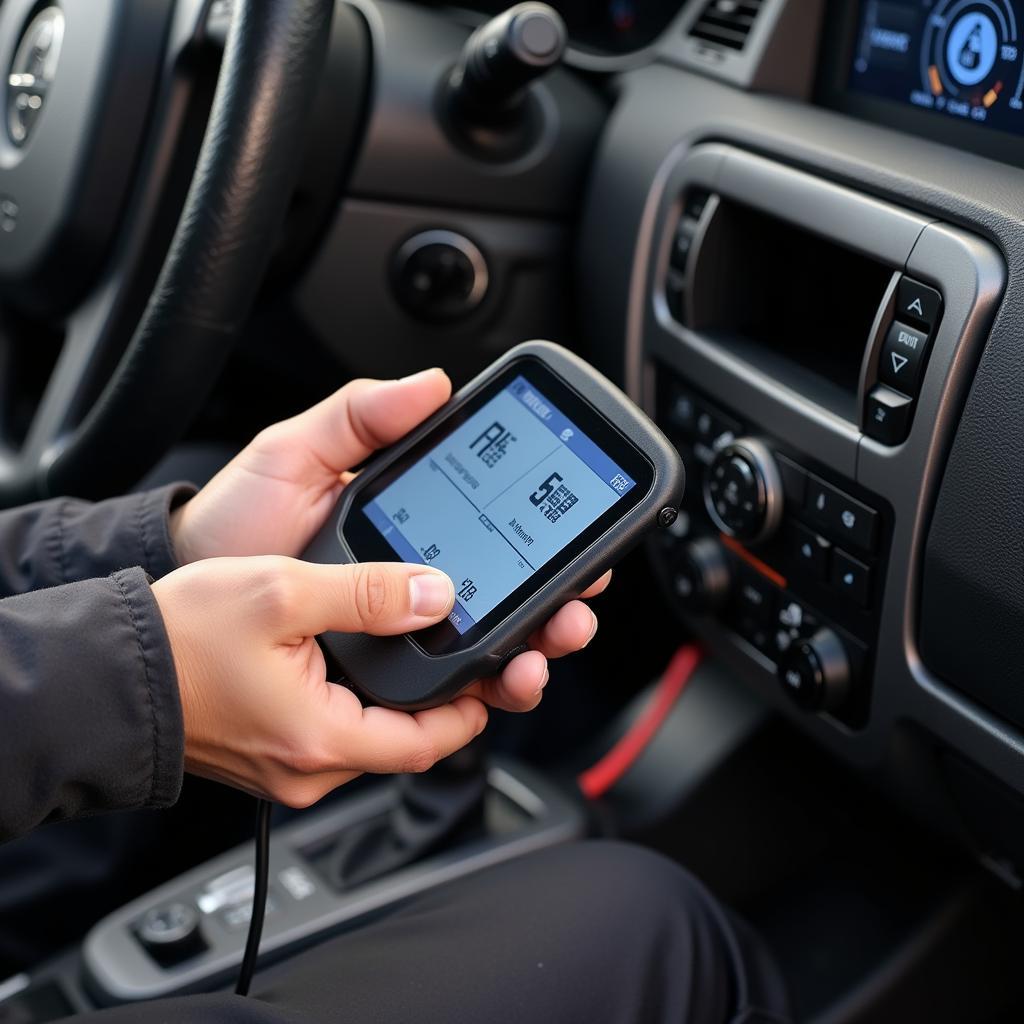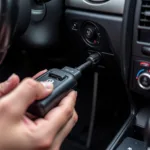The modern car is a marvel of engineering, packed with intricate electronics and complex systems. When problems arise, identifying the root cause can be a daunting task without the right tools. That’s where a diagnostic tool for cars comes in, providing a window into the inner workings of your vehicle and empowering you to diagnose and potentially fix issues. This comprehensive guide delves into the world of car diagnostic tools, exploring their types, functionalities, benefits, and how to choose the right one for your needs.
Understanding Car Diagnostic Tools
At its core, a diagnostic tool for cars is a device that connects to your vehicle’s onboard computer, often through the OBD-II port (On-Board Diagnostics), to retrieve diagnostic trouble codes (DTCs). These codes, presented as alphanumeric combinations, act like clues, pointing to potential issues within the engine, transmission, emissions system, or other critical components.
Types of Diagnostic Tools for Cars
The market offers a wide array of diagnostic tools, each catering to different user needs and budgets. Let’s break them down:
-
Basic Code Readers: These entry-level devices are ideal for DIY enthusiasts. They read and clear basic DTCs, providing a starting point for troubleshooting.
-
OBD-II Scanners: Offering more advanced features, OBD-II scanners provide live data streams from various sensors, allowing you to monitor engine performance parameters like RPM, coolant temperature, and oxygen sensor readings in real time.
-
Professional-Grade Scan Tools: As the name suggests, these tools are designed for professional mechanics and workshops. They offer comprehensive functionalities, including advanced coding and programming capabilities, bidirectional control over vehicle systems, and access to manufacturer-specific data.
Benefits of Using a Diagnostic Tool for Cars
Investing in a diagnostic tool for cars can yield numerous benefits, regardless of whether you’re a car enthusiast or a seasoned mechanic:
-
Accurate Diagnostics: By reading DTCs and accessing live sensor data, you gain invaluable insights into the health of your vehicle, leading to accurate diagnosis and effective repairs.
-
Cost Savings: Identifying problems early can prevent minor issues from escalating into costly repairs down the road.
-
Time Efficiency: Diagnostic tools streamline the troubleshooting process, enabling you to quickly pinpoint the root cause of issues and minimize downtime.
-
Enhanced Control: With the ability to monitor various vehicle parameters, you gain a deeper understanding of your car’s performance and can make informed decisions about its maintenance.
 Car mechanic diagnosing a vehicle with a diagnostic tool
Car mechanic diagnosing a vehicle with a diagnostic tool
Choosing the Right Diagnostic Tool for Your Needs
Selecting the ideal diagnostic tool depends on your individual requirements and expertise:
-
DIY Enthusiasts: For basic troubleshooting and code reading, a basic code reader or an entry-level OBD-II scanner is a cost-effective choice.
-
Advanced Users: Car enthusiasts with some mechanical knowledge might benefit from a more advanced OBD-II scanner with live data streaming and additional features.
-
Professionals: Mechanics and workshops require professional-grade scan tools offering comprehensive functionalities, including advanced coding and programming capabilities.
Conclusion
A diagnostic tool for cars is an invaluable asset for anyone who owns or works on vehicles. From basic code readers to professional-grade scan tools, the market offers a diverse range of options to suit every need and budget. By empowering yourself with the right diagnostic tool, you can take control of your car’s maintenance, identify problems early, and save time and money on repairs.
